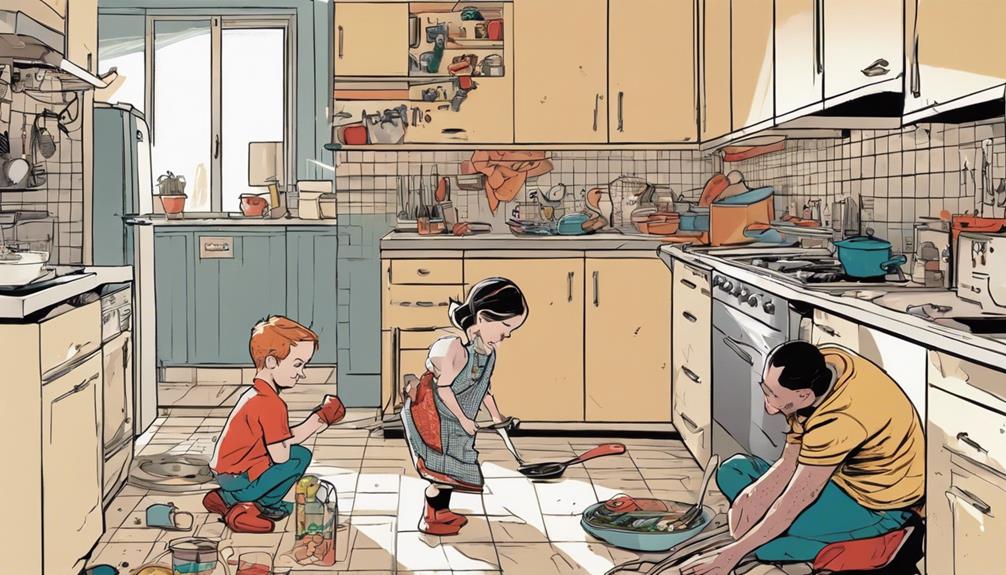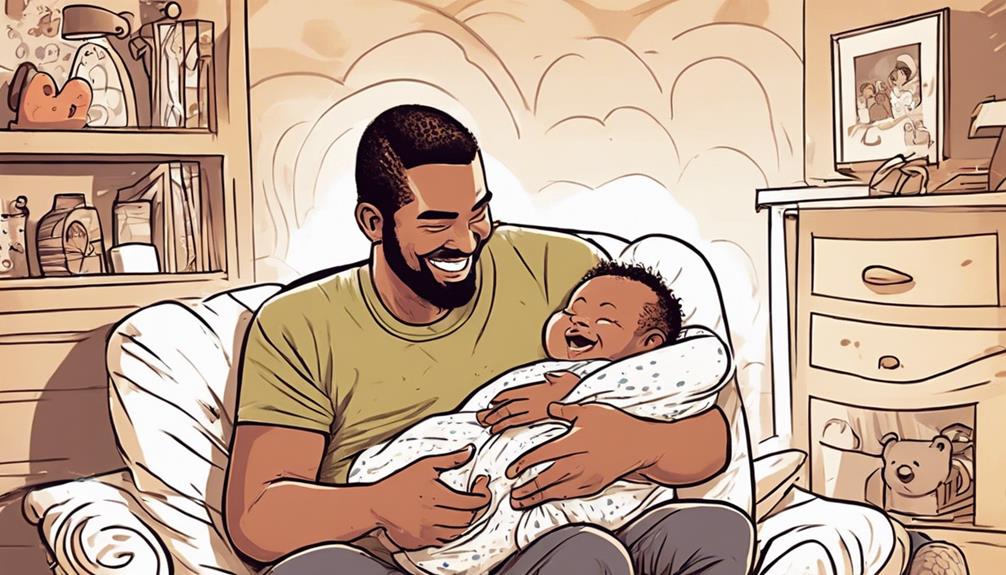To save a failing marriage, focus on rebuilding emotional connections and addressing underlying issues. Recognize signs like communication breakdown and emotional distance. Struggles in reconnecting emotionally include resentment and lack of trust. Prioritize quality time, open communication, and empathy to foster intimacy. Overcome detachment by scheduling bonding activities, seeking therapy, and practicing active listening. Find hope in acknowledging room for growth, believing in positive change, and seeking professional support. Effort, commitment, and patience are essential in the journey of rejuvenating a fading marriage. The journey of saving a dying marriage requires dedication and perseverance.
Key Takeaways
- Prioritize communication and emotional connection to rebuild intimacy.
- Engage in shared activities to create new positive memories.
- Seek couples therapy to navigate challenges and emotional barriers.
- Practice empathy, active listening, and understanding towards each other.
- Express feelings openly to foster a deeper connection and reignite hope.
Dying Marriage: Recognizing the Signs
When recognizing the signs of a dying marriage, it's essential to pay attention to subtle shifts in emotional connection and intimacy. Communication breakdowns, constant arguing, and feeling emotionally distant are common indicators.
You might notice a lack of interest in spending time together, frequent misunderstandings, or a decrease in affection. These signs can lead to couples drifting apart and living separate lives, impacting the overall health of the marriage.
It's vital to address these early warning signs before they escalate into more serious problems. By recognizing these initial red flags and taking proactive steps to address them, you can potentially work towards saving your relationship before it reaches a point of complete detachment.
Struggles of Emotional Reconnection

Recognizing the signs of a dying marriage often leads to confronting the challenges of emotional reconnection within the relationship. Rebuilding emotional intimacy can be demanding but critical for saving your marriage. Communication breakdowns, feelings of resentment, and a sense of emotional distance are common hurdles.
It's crucial to create a safe space for open and honest conversations, prioritize quality time together, and show empathy towards each other's feelings. Addressing past hurts, seeking counseling, and actively working on rebuilding trust are key steps in the journey towards emotional reconnection.
Steps to Rebuilding Intimacy

To rebuild intimacy in a struggling marriage, focus on prioritizing quality time together and fostering emotional connection through open communication. Make a conscious effort to spend uninterrupted time with your partner, engaging in activities you both enjoy and creating new memories.
Share your thoughts, feelings, and concerns openly and honestly to deepen emotional intimacy. Listen actively to your partner's perspective and validate their emotions to strengthen your bond. Practice empathy and understanding towards each other's experiences and challenges.
Show affection through small gestures, compliments, and physical touch to reignite the spark in your relationship. By investing time and effort into rebuilding intimacy, you can nurture a stronger connection and revitalize your marriage.
Overcoming Detachment in Marriage

Reconnecting emotionally is key to overcoming detachment in your marriage. To address this issue effectively, consider the following steps:
- Schedule regular quality time together to communicate and bond.
- Engage in activities that both of you enjoy to reignite shared interests.
- Seek couples therapy or counseling to navigate through emotional barriers.
- Practice active listening and empathy to understand each other's perspectives.
- Express your feelings openly and honestly to foster a deeper emotional connection.
Finding Hope in Saving Marriage

In the midst of marital challenges, discovering hope for saving your marriage is essential for moving forward positively. Finding hope involves acknowledging that change is possible and believing in the potential for improvement.
It's about recognizing that despite the current difficulties, there's a chance to rebuild and strengthen your relationship. Hope can come from seeking support, whether through couples counseling, individual therapy, or self-help resources.
It's about understanding that challenges are a part of every relationship but can be overcome with effort and commitment. By focusing on the possibilities for positive change and growth, you can reignite the spark of hope needed to navigate through the tough times and work towards saving your marriage.
Frequently Asked Questions
Can a Dying Marriage Be Saved Without Both Partners Being Fully Committed?
You can save a dying marriage without both partners fully committed, but it's challenging. Start by understanding each other's perspectives, communicate openly, seek professional help, and be willing to put in effort to rebuild trust and connection.
How Long Does It Typically Take to Rebuild Trust in a Struggling Marriage?
Rebuilding trust in a struggling marriage can vary. It depends on efforts made, communication, and willingness to work together. Patience, consistency, and genuine actions are key. Remember, progress takes time, so be patient with the process.
Is Professional Help Necessary to Revive a Failing Marriage?
Reviving a failing marriage may seem challenging, but professional help can provide valuable insights and guidance. With expertise and support, moving through challenges becomes more manageable, offering a chance for positive change and growth.
What Role Do Personal Boundaries Play in Saving a Dying Marriage?
In saving a dying marriage, personal boundaries are essential. They establish respect, autonomy, and emotional safety. Clearly communicate your needs and limits while actively listening and honoring those of your partner. Balancing boundaries fosters a healthier relationship.
Is It Possible to Save a Marriage if One Partner Has Already Emotionally Checked Out?
You can save a marriage even if one partner has emotionally checked out. Communication, counseling, and effort from both sides can reignite the spark. Addressing issues head-on and showing commitment to change can rebuild the connection.
Conclusion
To sum up, saving a dying marriage is a challenging yet rewarding journey that requires dedication and commitment from both partners. Remember the old adage, 'where there's a will, there's a way,' as you work towards rebuilding intimacy, overcoming detachment, and finding hope in your relationship.
By recognizing the signs, addressing issues, and taking proactive steps, you can breathe new life into your marriage and create a stronger foundation for the future. Stay determined and keep moving forward together.










